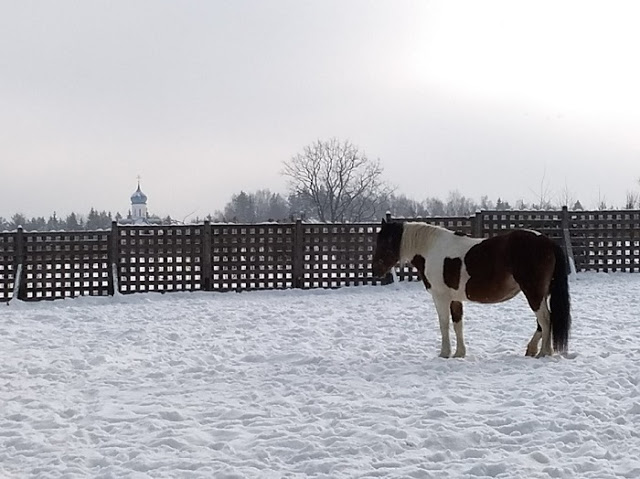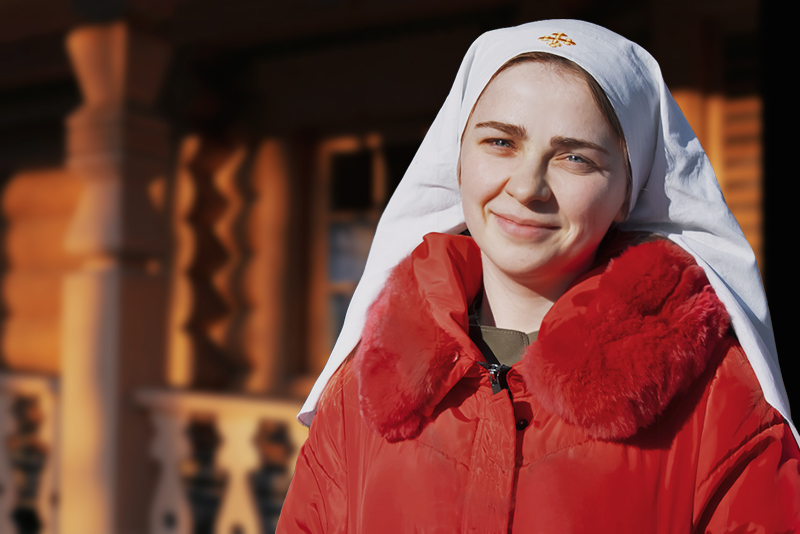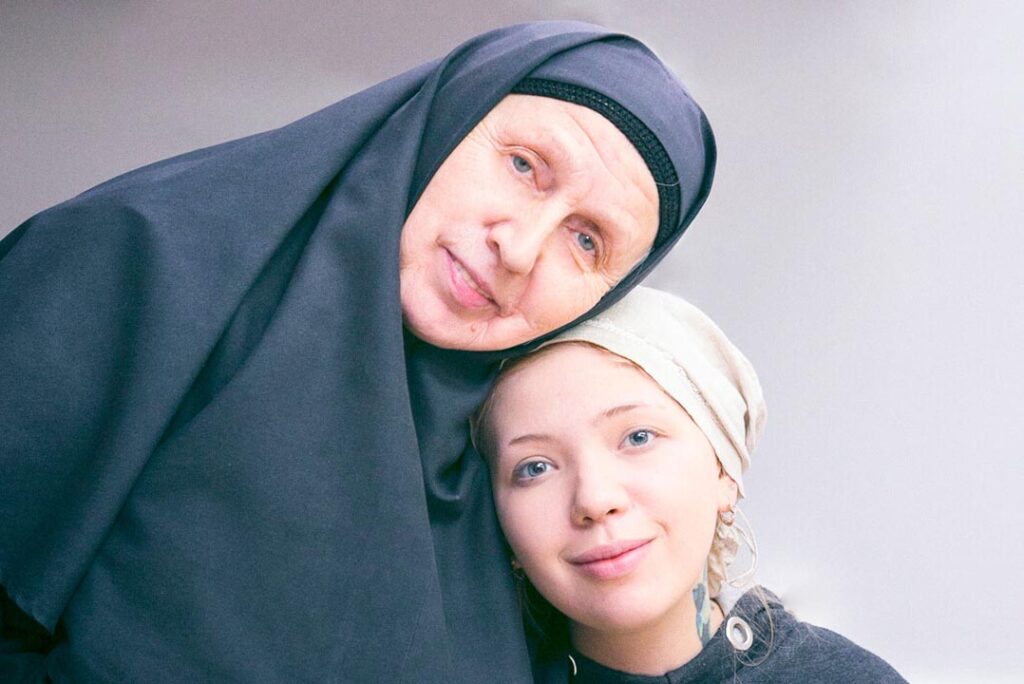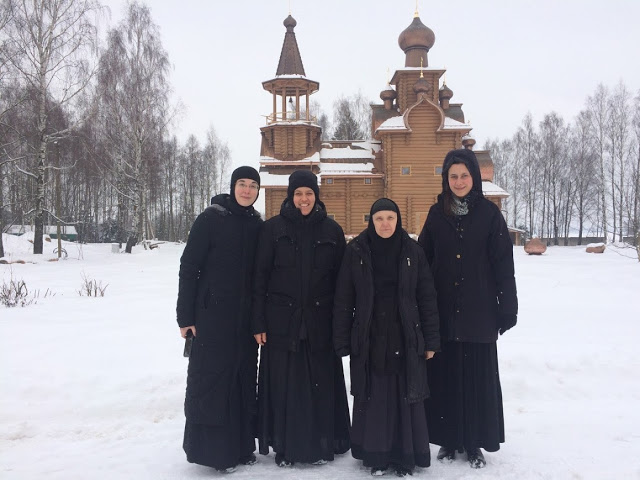
In the pre-dawn darkness of mid-February, our car from Saint Elisabeth Convent slid over the snow through the gate of the Women’s Farmstead, and pulled up to the house in which Fr. Andrew would celebrate Divine Liturgy. It was my second week staying at the convent, and I, along with another guest and one of the nuns who had herself never yet seen the Women’s Farmstead, were being given the opportunity to visit this unique place. It quickly became apparent that the farm is quite rustic: liturgy was celebrated in one of the farmhouse rooms, and the choir and guests crowded around a few tables for the meal after the service–but tight quarters and winter weather in no way dampened the joy of worship and fellowship. As the resident nun, Mother Barbara, told us about the farm’s history and gave us a tour (through the snow) of part of the property, we realized that this is a place of great possibilities, both for the property and for the women who live here–because with God, anything is possible.
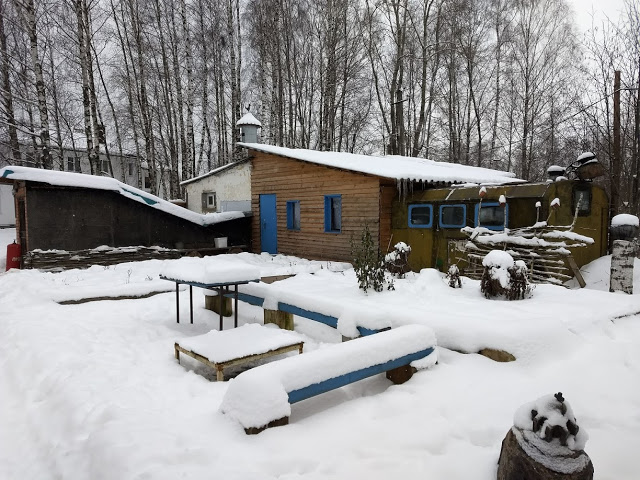
The Women’s Farmstead was founded seven years ago on a piece of land that was once a military base, about a half-hour drive outside of Minsk, well into the countryside. When the property went on the market the buildings were mostly in ruins, but among those buildings stood an abandoned church. There were quite a few bidders for the property, and apparently in an attempt to undermine the monastery’s bid, an arsonist set fire to the church and burned it down. But miraculously, the next thing the monastery knew, its bid had been accepted and the government gifted them half the land! Having secured the property, the monastery attempted first to renovate all the living quarters, but these efforts didn’t go well. Then Fr. Andrew blessed the reconstruction of the church, and as soon as work on the church began, the farm received money to complete a major renovation of the largest residential building! So today, the various residential buildings are in various states of repair, and the church is nearing completion (and it’s stunning!).
When Mother Barbara, the nun in charge, moved to the farmstead, there was no concrete plan, other than to make a home for whatever women came to them. And a variety of women rapidly arrived: recovering addicts, women having served time in prison, and women who were homeless, or had bad family situations. Many have come and gone, but a few have stayed long-term. There seems to be no time limit set for one’s stay at the farm: if you can follow the rules, it can be your home forever. If you can’t follow the rules, you have to leave.
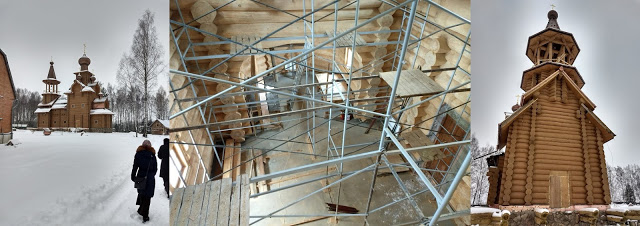
These rules emerged early on in the farm’s life: Mother Barbara realized she had to set house standards, schedules, and mandatory chores. I asked if attending liturgy (every Tuesday at the farm) is obligatory, and she said yes: the women don’t understand “voluntary” activities — they need concrete guidelines. But no one is obliged to commune, and Mother Barbara was surprised to see how quickly the women themselves appreciated the liturgical experience and the need for the sacraments. They attend a catechism class on Sunday afternoons.
The property is a little over 22 acres, and the facilities include various houses, huts, and small apartment buildings. This allows for many different kinds of living arrangements, both for nuns and laypeople — some of the inhabitants now include families that want to cook for themselves, so there are apartments that allow this, while there are also more “dormitory”-style dwellings, where the women go to the common refectory for meals.
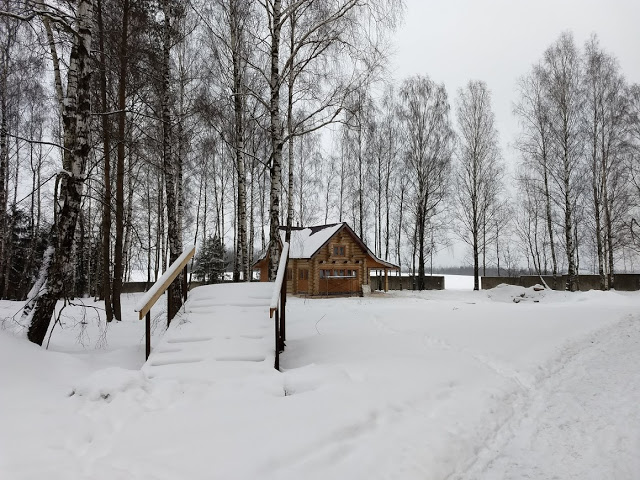
At first, there was no definite plan for what would be on the farm. From what Mother Barbara said (via a translator), it sounds as though the kitchen garden was the first thing to be planted, and then someone gave goats to the farmstead, and then someone else gave chickens. Now there are also rabbits (for eating!), and various workshops: sewing, simple ceramic decorating, and a cosmetics workshop (to make creams, soaps, etc.) is being planned. One of the farmstead’s major endeavors is growing pussy willows, and making the Palm Sunday bouquets that are sold all over Minsk at the end of Lent. The women on the farm have already started preparing for this year’s harvest and bouquet construction. And whatever is sold from the farmstead supports the farm: even when their products are sold at the monastery’s “main campus” or outlying shops, the revenue comes back to the farmstead.
One can imagine how easily conflicts must arise among women with very checkered backgrounds, and I was amazed by how calmly Mother Barbara spoke of the history of the community: she said there has only ever been one “serious” fight. I didn’t dare ask what constituted “serious”! In the beginning, the local police tried to dissuade the sisters from opening the farm, and the local government was also very suspicious, believing that such an operation would only bring trouble to the area. But Mother Barbara and Father Andrew have worked hard to be transparent with the local authorities, inviting inspections and developing relationships, so that the farmstead now has the support of the local community, and rarely encounters problems with their neighbors. Really, when one considers the possibilities for disaster in such a risky undertaking, the grace of God becomes so much more apparent. It doesn’t seem like any of this should have worked — Mother Barbara was not trained in conflict management and working with recovering addicts! But the nuns and lay-sisters have such love for the people, and this love, and their love of God, and God’s great mercy and love, are the pillars of the Saint Elisabeth community and its missions, including the Women’s Farmstead.
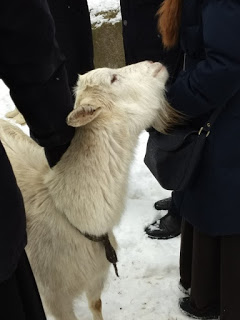
It is hard to choose a highlight of the day we spent at the farm: celebrating the liturgy; enjoying the fellowship of the meal afterwards; seeing the magnificent but still-under-construction church in its blanket of snow; meeting the goats (one of whom was very friendly!), chickens, rabbits, and dogs; or warming up with a cup of tea in one of the residential houses. The farm needs prayers and support, but it also offers a great deal, and not just to its residents, but to anyone granted the blessing of making a visit. It is a place of prayer, inspiration, struggle, beauty, hard work, and transformation. May God continue to bless the farm and all the women there.






